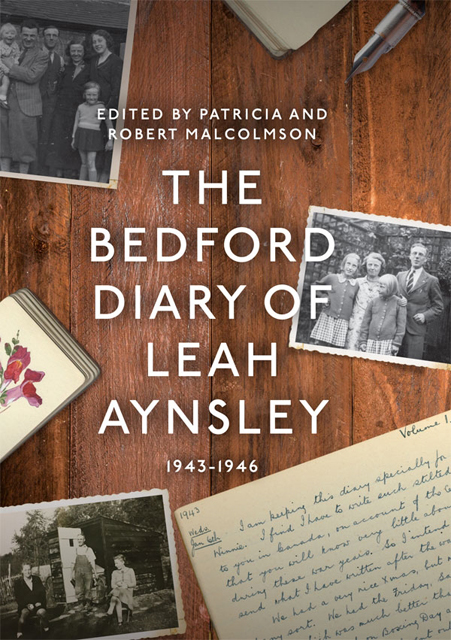Epilogue
Published online by Cambridge University Press: 02 June 2023
Summary
Leah Aynsley's life embraced many of the everyday experiences that would have marked the lives of tens of thousands of English women during the 1940s. There was, in particular, the prominence of time-consuming housework and the provisioning of food and drink (though not, for her, the duty of child-care). A degree of self-sufficiency through gardening was a common and widely promoted ideal, though Leah certainly came closer than most women to realising this ideal. Caring for an ageing relative, as she did for her father, was also commonplace. Keeping tabs on a loved one in the armed forces, and often writing to him, as Leah followed her younger brother's travels and wrote of his welfare during his months of service, was a central feature of many women's lives. Recreational activities varied widely in wartime – and they were fairly abundant, partly because the government acknowledged that they played a role in sustaining public morale, especially as the war dragged on and on and on. Books played a reasonably prominent role in Leah's life, musical performances some role, the radio almost none at all. Her travelling was almost entirely local, and never – with one exception – involved sleeping anywhere but in her own house. Rural life and traditions meant a lot to her, as they did for other women at the time who were mainly town-dwellers. It was frequently easy to get from town to country – very easy for those living in Queen's Park, Bedford, which bordered on countryside – and rural outings in various forms were staples of life, and not only in the warm months of the year. Leah would have been classified as a town-dweller, but much of her energy and many of her thoughts were invested in cultivating the land. While shopping was never easy in wartime, the shops that supplied life's necessities in urban districts were usually located close to home. Several that Leah relied on were located in nearby Iddesleigh Road.
Diaries are rarely tell-all documents. Self-censorship has been common amongst diarists, and Leah was no exception. Some matters that were personally important to her were not fully disclosed (or perhaps not disclosed at all).
- Type
- Chapter
- Information
- The Bedford Diary of Leah Aynsley1943-1946, pp. 155 - 156Publisher: Boydell & BrewerPrint publication year: 2020

